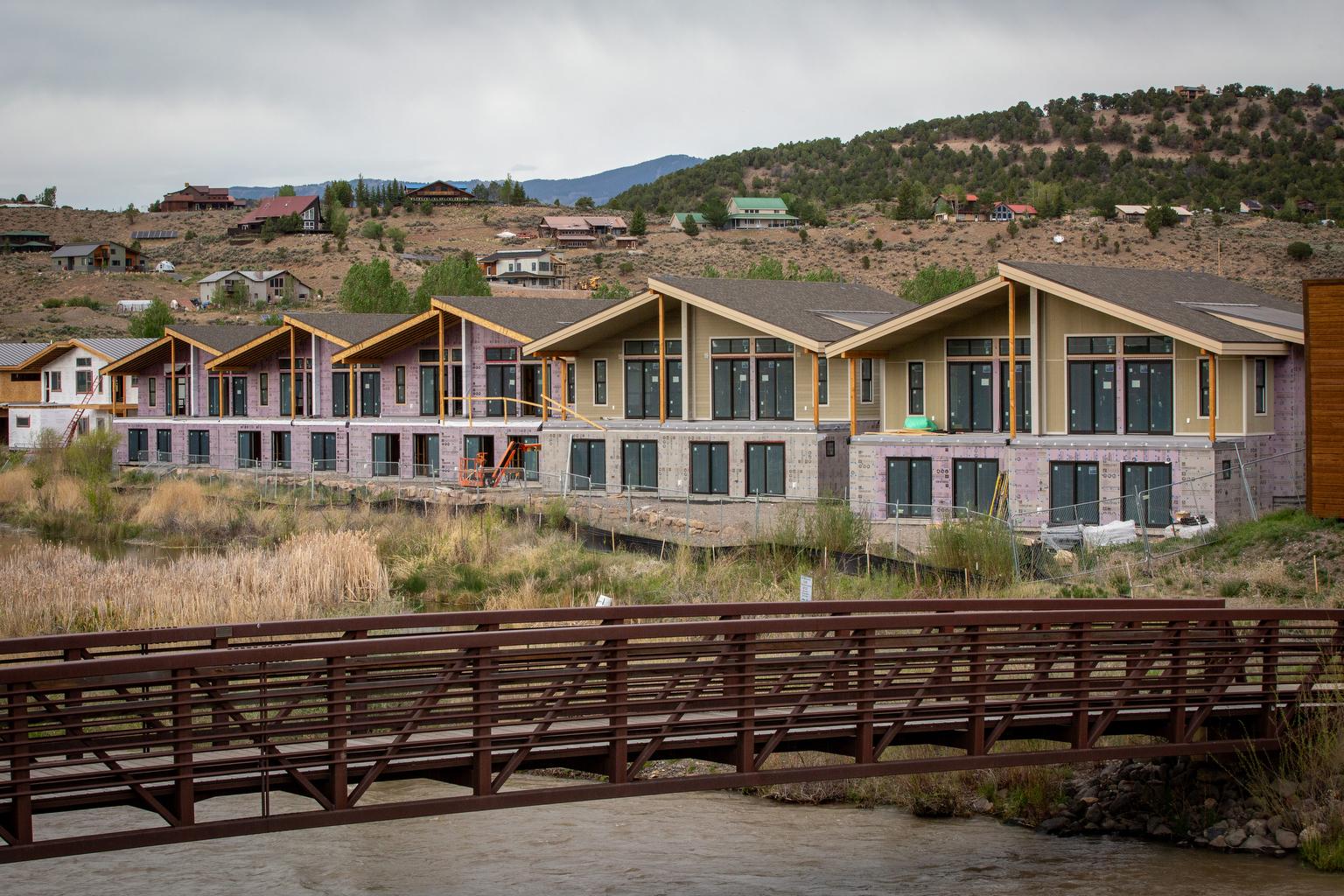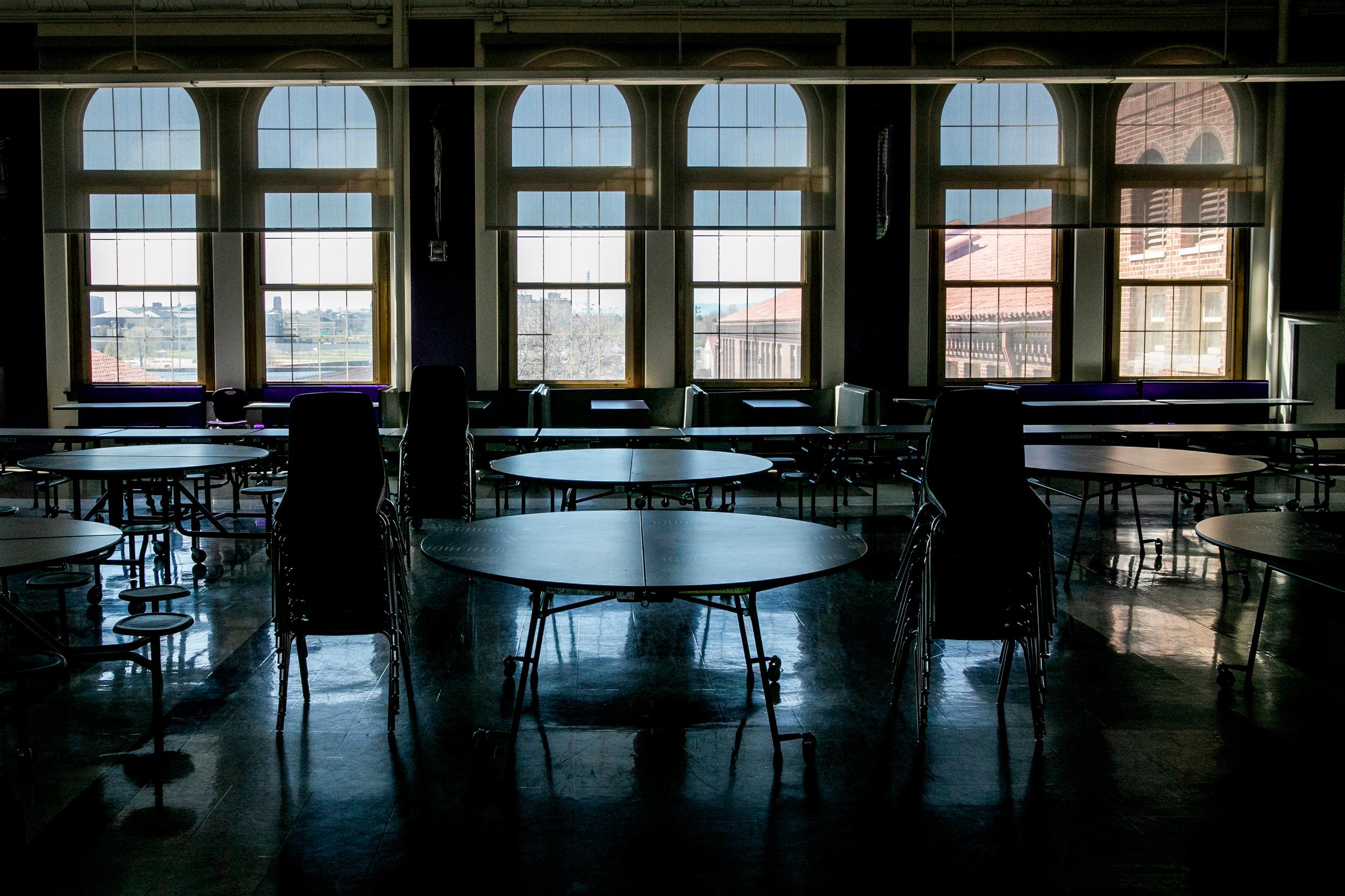
CPR will be publishing a series of articles about the top issues for Colorado voters, drawn from the Voter Voices survey, and how the offices and questions on their ballot relate to them. All of the stories will be included in our forthcoming voter guide.
Living in Colorado, for many, means spending a lot of time worrying about how to make the rent or the mortgage, or whether they’ll ever be able to buy a home.
Housing costs have been on a long and sometimes sharp climb throughout the state. In Colorado Springs, home prices have risen 119% since 2015, according to the Common Sense Institute. In the Denver area, the average sale price for homes this year is $617,000, up from $304,000 a decade ago.
That shift has been driven by a long-running mismatch in supply and demand. Between 2013 and 2020, more than 40,000 new people a year were moving to the state. And while Colorado has built a lot of new housing, it hasn’t been enough to keep prices from climbing ever higher.
“I've lived in Colorado my entire life,” Maciej Wal wrote in his response to the Voter Voices survey. “When I was graduating high school in 2013, a $50,000 a year salary would get you a house, a car, and money to be able to THRIVE. Now if you make 50,000 a year, you are barely surviving.”
In many ways, what’s happening here is just an extreme version of what people are experiencing across the country. Since the Great Recession, America has seen an ever widening housing gap, with more and more middle-income families priced out of home ownership.
Those trends have hit renters hard, too. Denver’s median monthly rent increased an eye-watering 82% between 2009 and 2021, climbing from $856 a month to $1,554, one of the steepest increases in the country in that period. Recent U.S. Census data found that a quarter of Denver tenants spend more than half their paycheck on rent. Today, the average rent in Pueblo stands at close to $1,000 a month for a one bedroom. In Grand Junction, it’s $1,100.
While both the inflow of new people and the spike in housing costs have leveled off in the last year or so, households across Colorado still feel the strain.
For his part, Wal, a political moderate who lives south of Denver, is frustrated by all the forces he sees standing in the way of building more housing.
“We have people blocking new developments because they don’t like change,” he said. “And the developments that we do get are all for rent. How are we supposed to build community when no one feels like they own a stake in their community?
Wal wants to see Colorado start building more affordable units, like condos, that people can buy into, and feel like they are part of something.
If housing costs and development are top concerns for you, here is where your vote has the most impact.
The presidential race
Both candidates have offered ideas to lower housing costs.
The centerpiece of Vice President Kamala Harris’ housing plan is a proposal to help first-time homebuyers with $25,000 in downpayment assistance, although critics note that wouldn’t address the shortage of starter homes on the market.
She’s also pitching new tax incentives for builders who focus on affordable housing, with the goal of 3 million new housing units built nationwide over the next four years. And she wants to double an existing program that supports local governments to pursue “innovative” approaches to affordable housing, bringing funding to $40 billion.
Harris also wants Congress to crack down on two elements of the housing market that have increasingly been a focus for Colorado lawmakers — the trend of large companies buying up single-family homes as investment properties, and landlords’ use of rent-setting apps that aggregate market data.
Former President Donald Trump’s housing plan contains fewer specifics.
During his first term, he convened experts to examine regulatory hurdles to affordable housing, and could potentially draw from their recommendations, should he win a second term.
In this campaign, Trump has blamed the recent surge in immigration for housing costs and said that his plans for mass deportations will also help bring down rents around the country. However, construction industry groups and economists warn that large-scale removal of undocumented immigrants would likely also cut significantly into the labor pool needed to build new housing.
He has attacked the Biden administration for encouraging communities to drop single-family zoning. And Trump has proposed building 10 “Freedom Cities”, each the size of the District of Columbia, from the ground up on federal land. While the proposal is light on details, most undeveloped federal land is concentrated in Western states, like Colorado.
The congressional races
Many of the housing proposals from the presidential candidates will actually depend on getting Congress to go along. Two of the bills Harris specifically mentions in her plan, the Stop Predatory Investing Act and the Preventing the Algorithmic Facilitation of Rental Housing Cartels Act are Democratic bills without any Republican sponsors.
Colorado’s Republican and Democratic congressional candidates blame different causes — and propose different solutions — to the housing crisis.
Like many of his fellow Republican candidates, Gabe Evans, who’s trying to flip the Eighth District, blames federal spending for contributing to higher housing costs and says he’d work to dial back federal dollars.
Evans argues that government spending sparked the recent jump in inflation, which led the Federal Reserve to raise interest rates in recent years. Those higher rates have meant higher mortgage payments for homebuyers, and encouraged homeowners to stay put, rather than lose their favorable rates. The trend is shifting, though; in September, the Federal Reserve lowered interest rates for the first time in four years, with analysts expecting more cuts in the future.
Rep. Yadira Caraveo, the Democrat whom Evans is trying to unseat, touts her support for boosting the low-income housing tax credit (and renaming it the affordable housing tax credit). She’s also a co-sponsor on a bill that would prod local governments to allow denser housing, which tends to be more affordable.
Many of the Republican candidates also criticize federal energy-efficiency and other construction mandates they argue drive up the cost of new homes. For their part, Democratic candidates lean into federal funding and tax incentives to support affordable housing construction
Two of Colorado’s members of Congress have thrown their bipartisan support behind an effort to build new housing for mountain towns on nearby national forest land. Rep. Joe Neguse is sponsoring a bill to make those projects easier, with Rep. Lauren Boebert signed on as a co-sponsor.
State legislative races
Housing has become a top issue for Colorado’s legislature in recent sessions.
For Gov. Jared Polis and many Democratic lawmakers, the solution lies in getting local governments to allow denser development in areas that are currently zoned for single family houses. The idea is that condos, townhomes and apartment buildings are more attainable for many households, while also being easier to serve with public transit.
The most ambitious effort in this area, a land-use bill that would have required cities to allow multi-family development and accessory dwelling units in more areas, failed last year amid strong local government opposition. Since then, lawmakers have taken a more piecemeal approach. They’ve struck down local growth caps. They’ve also forced dozens of cities to allow accessory dwelling units; create denser zoning near transit corridors; and eliminated minimum parking requirements in some areas, among other changes.
While the issue doesn’t break down entirely on party lines, most of the support for the state getting involved in local development decisions comes from Democratic lawmakers. Republicans have tended to support voluntary incentives for more density but characterized anything stricter as threatening the character of existing communities.
Progressive statehouse Democrats have also turned their attention to policies for renters. In recent years, they’ve unsuccessfully pushed for rent control, made it harder for landlords to push out tenants when their lease ends, forced cities to lift their caps on group housing and made it easier for local governments to buy affordable apartment buildings.
Opponents to those policies argue they put more burdens on landlords, with the risk of pushing smaller landlords in particular into selling, further reducing the supply of affordable rentals.
Republican lawmakers have also focused a lot over recent years on construction defects laws, arguing that the state makes it too easy for condo owners to sue builders over problems, which put a drag on new condo construction. However, efforts to change the liability law have proven hard to get through the statehouse.
Both parties have also worked together over the past year to approve a series of property tax cuts, after soaring values led to big spikes in valuations. While those cuts will keep homeowners’ tax bills from growing quite so quickly, they are also contributing to a looming budget shortfall for the state.
Local races
Housing development policy is largely determined at the local level, and it's an eternally hot topic for local elected officials. That makes your local votes some of the most consequential you take, when it comes to the future of housing in your immediate area.
Through zoning, your local officials control things like minimum lot sizes for homes and determine where developers can construct multi-family buildings, and where they must stick with single-family units. Their voices also carry significant weight when the state considers changes to housing policy.
For residents, zoning policy can often go hand-in-hand with the character of their communities, and large new developments often meet with stiff opposition, slowing down construction time and raising costs. In Steamboat Springs, residents recently rejected a plan for 2,300 new, income-controlled units in the town.
In some of Colorado’s larger, more liberal cities like Denver, local governments have raised funding for affordable housing and been able to increase allowable development densities. But other places, like Fort Collins, have faced fierce strong pushback from residents to upzoning proposals.
Ballot measures
Voters in a number of Colorado communities will decide on housing-related ballot measures in this election.
For example, Denver will vote on proposals to increase funding for affordable housing.
Voters in Montrose, Avon and Mt. Crested Butte will consider increasing taxes on lodging to pay for housing projects and other causes. In Dillon and Snowmass Village, voters will consider whether to approve new workforce housing developments.
There is one statewide ballot measure related to housing, Amendment G, which would expand property tax breaks for veterans. Colorado voters did take a major step with affordable housing two years ago when they passed Prop. 123. That measure dedicates $300 million a year to affordable housing efforts around the state.
Editor's Note: An earlier version of this story incorrectly stated how much money Prop. 123 puts into affordable housing each year. It's $300 million, not $300,000. The story has been corrected.








